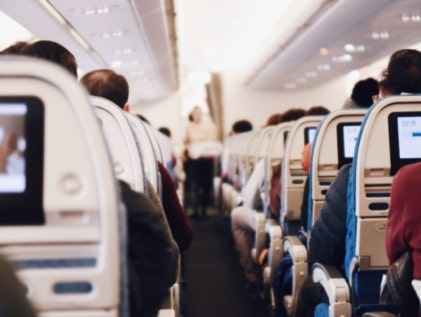Traveling during the holiday season, whether by car or plane, can prove to be stressful and time-consuming for even the most seasoned traveler. Bringing along a loved one living with dementia can increase that stress exponentially, especially if you don’t make the necessary preparations beforehand. Before making any concrete decisions about your travel, it’s important to consider your loved one’s daily behaviors and whether they could negatively impact your plans. You may want to consider having family come to you this holiday season if your loved one is prone to agitation or aggressive behavior, tends toward wandering or is at high risk of falling.
Watching a parent transition from caregiver to care receiver is never easy, and making this transition involves numerous considerations. How do you know when to seek care? And what can you do to help your parent access the right resources at the right time to remain as independent as possible? Our comprehensive caregiver checklist will help you navigate every step of the way. Download your copy today →

Other behaviors and symptoms that may make travel difficult include:
- Confusion in loud, crowded, and unfamiliar public places
- Sudden outbursts of yelling, screaming or crying
- Difficulty with balance and prone to falls
- Unstable medical conditions that may require immediate attention
- Frequent disorientation
- Being in the later stages of dementia
If you, as the caregiver, and your support system decide that you’re willing to take on the challenge and that your loved one is capable of managing the trip, we recommend taking the following precautions:
- Set Realistic Expectations. Take a hard look at your loved one’s current situation and adjust your travel accordingly. If he’s mid-stage or beyond, keep your destination close to home and avoid challenges like air travel altogether.
- Keep Identification Easily Accessible. Keeping in mind the worst-case scenario, make sure your loved one has an ID bracelet or necklace on before departing.
- Arrange Medical Transport. Transportation could be a helpful service to have, particularly during transitions like getting to and from an airport, as well as in and around a travel hub.
- Keep Surroundings and Routines Familiar. People with dementia can be easily confused and agitated by unfamiliar surroundings. Make sure to bring portable items from home, like a favorite pillow or blanket, and try to adhere as strictly as possible to your loved one’s daily routine.
- Allow Extra Time. During the holidays, you can count on travel taking longer than you anticipated; this is doubly true when accommodating for dementia. Allow for extra time to allow for delays like traffic and gate changes without the stress of having to rush someone who really can’t be hurried along.
No matter your plans, we hope your plans go smoothly, and your holiday season is full of love and laughter!

